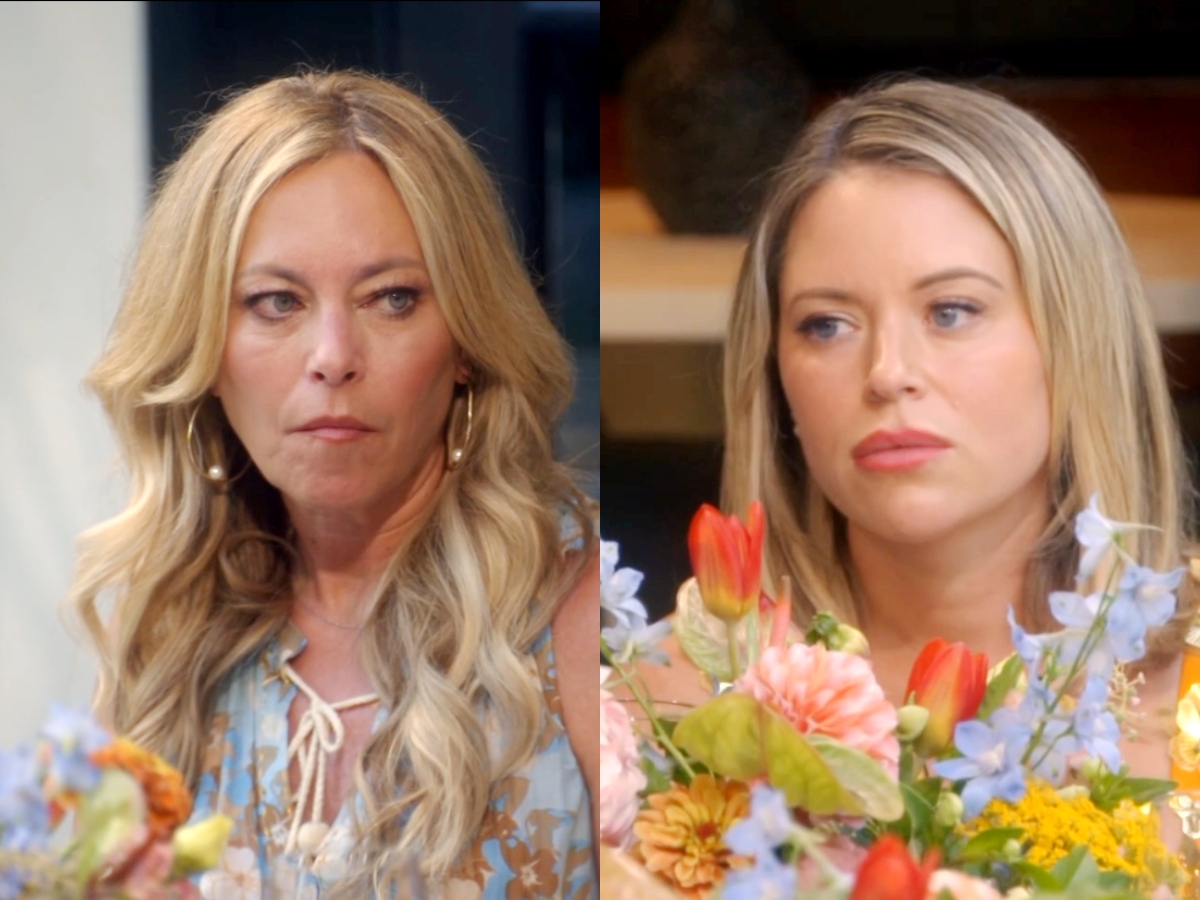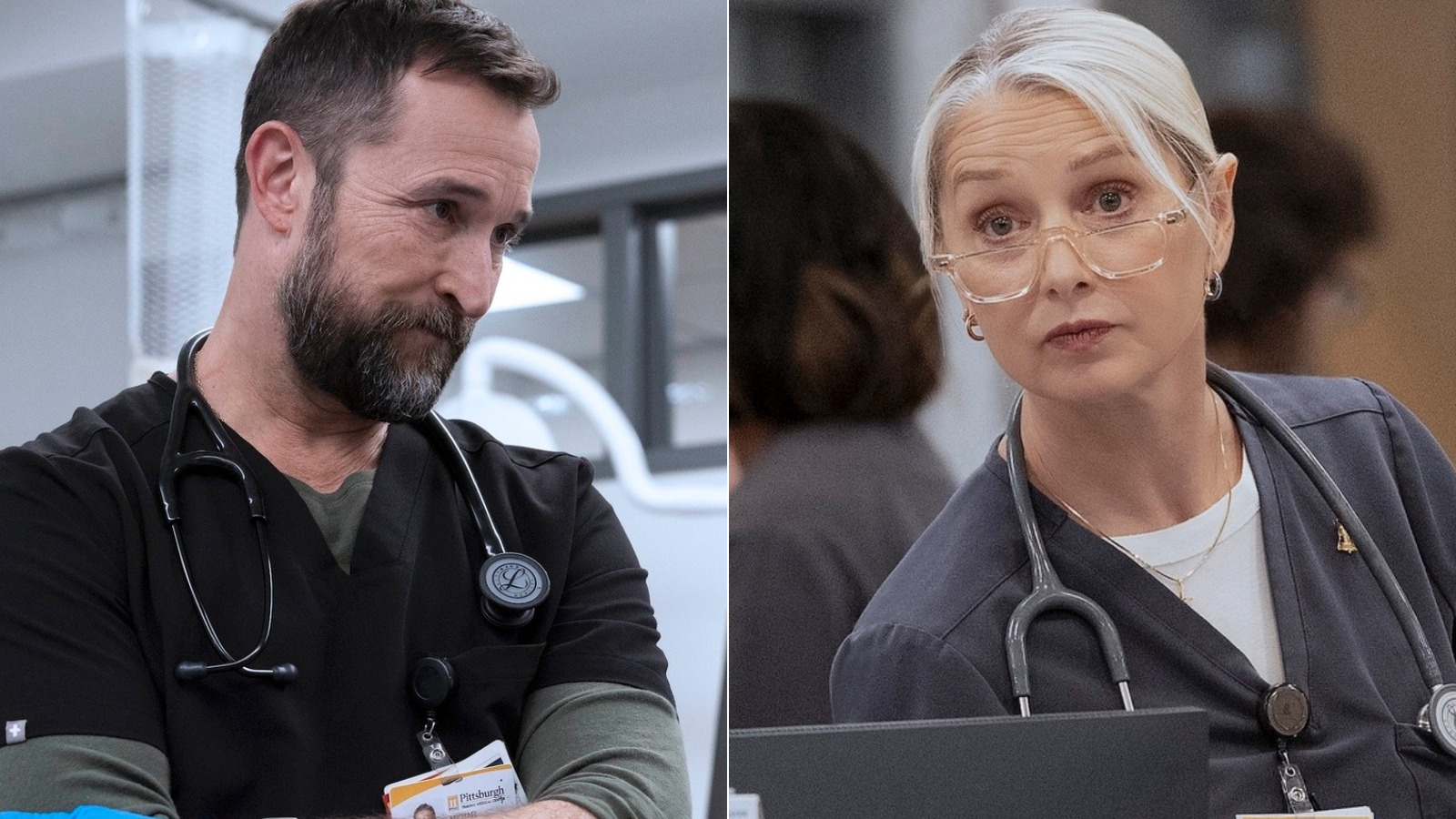
Richard Curtis Carlos Alvarez/Getty Images
Love Actually director Richard Curtis is expressing his regrets about the film’s multiple body-shaming jokes.
“I remember how shocked I was, like, five years ago when [my daughter] Scarlett said to me, ‘You can never use the word ‘fat’ again,’” Curtis, 66, recently recalled while being interviewed by his daughter, 28, at the U.K.’s Times and Sunday Times Cheltenham Literature Festival. “And wow, you were right.”
Curtis noted that while he never meant to be “malicious” in his intent, he was admittedly “behind the curve,” explaining that those jokes are no “longer funny.”
“I think I was unobservant and not as clever as I should have been,” he added.
In the 2003 holiday film, which follows nine intertwined stories that examine the complexities of love, Natalie (Martine McCutcheon) is the romantic interest of Hugh Grant’s Prime Minister David. Throughout the movie, Natalie is constantly shamed for her body type, being referred to as “plumpy” by her father and told she has “huge thighs” by a fellow coworker. During one of Love Actually’s most pivotal — and romantic — scenes, she’s even told she weighs “a lot” by David after jumping into his arms at the airport.
Love Actually isn’t the only film of Curtis’ with controversial choices. When asked why his 1999 rom-com Notting Hill — starring Julia Roberts and Grant, 63 – cast so many white men, the director admitted he was “sort of wrong and stupid about that.”
“I wish I’d been ahead of the curve,” he continued. “Because I came from a very undiverse school and bunch of university friends, I think that I’ve hung on, on the diversity issue, to the feeling that I wouldn’t know how to write those parts.”
Love Actually also featured a “lack of diversity” Curtis has commented on, sharing his regrets during a November 2022 interview with ABC News. “There are things you’d change but, thank God, society is changing, so my film is bound, in some moments, to feel out of date,” he told Diane Sawyer at the time.

Hugh Grant, Martine McCutcheon. Cover Images
In regards to Bridget Jones’ Diary, which premiered in 2001, Curtis has faced scrutiny over the focus on star Renée Zelleweger’s weight. The actress reportedly gained 30 pounds for the role, with her character being constantly concerned with her body image.
Following the film’s release, Zellweger, 54, reflected on the public’s obsession with her body size.
“The question that I have been asked the most, can you guess? ‘How did you lose that weight?’ Zellweger revealed in a recently resurfaced interview clip. “But the thing is, it saddens me so much because it seems to imply that one way of being is acceptable and the other way is invaluable and I don’t want to answer the questions, because it comes with a certain amount of [applause].”
The Oscar winner added that she was told while filming the movie that her character was voted “the most sexy personality” on screen in England. “I thought ‘Wow, that right there completely nullifies the notion that you’re supposed to be a size zero in order to be considered attractive, don’t you think?’” she quipped.
Looking back on the role in 2016, Zellweger told British Vogue that she remains mystified over why people cared so much about Bridget Jones’ figure: “She’s a perfectly normal weight and I’ve never understood why it matters so much,” she said.








.jpg)
